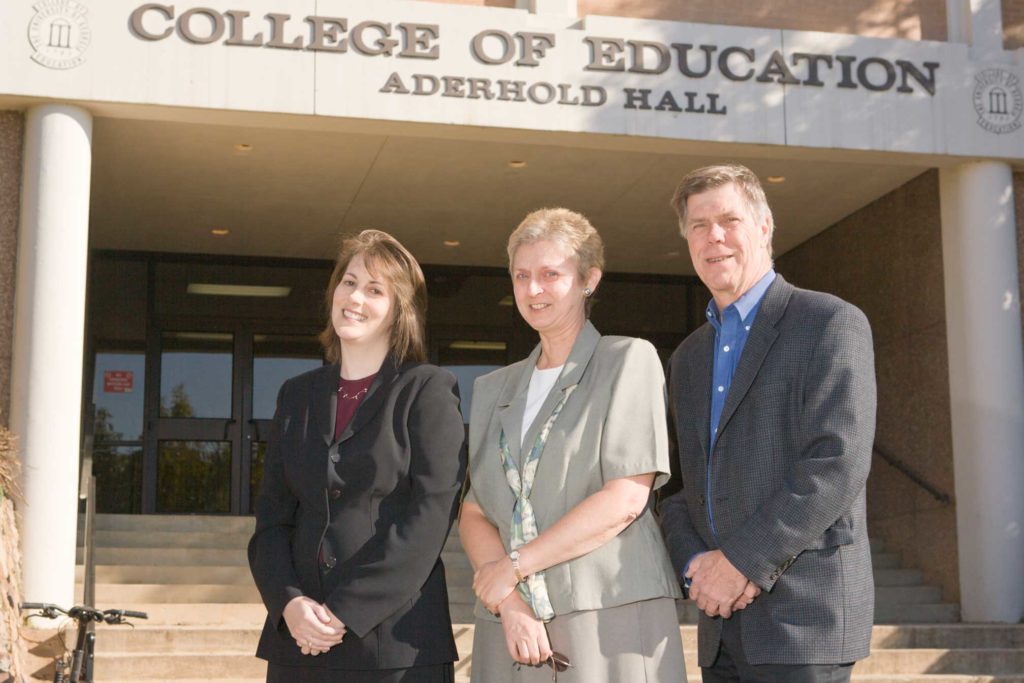Columns: What is the mission of the Education Policy and Evaluation Center?
Harnish: To support research on policy and evaluation to improve education. I provide evaluation expertise that can be used to improve education interventions and policy decisions about programming or resource allocation.
We work with local schools, districts, state education offices, national and international groups that need to evaluate their educational programs or would like to know more about program evaluation. We develop an evaluation plan based on their needs and the questions they want to answer.
DeBray-Pelot: The policy research group provides independent analysis of a variety of K-12 education issues so policy makers have information on best policies and practices.
We are developing a comprehensive research agenda that will focus not just on Georgia, but the entire Southeast.
We are hoping to study school finance, state and federal accountability policies, and student assignment policies.
We are trying to develop relationships with external constituencies, various actors throughout state and local government, superintendents and legislators.
Horne: In the College of Education, one of the largest colleges in the country, a lot of people do policy work already.
There are also people who do program evaluation.
The center was created to pull together this diverse group of people doing the same work.
Columns: What is the center’s role at UGA?
DeBray-Pelot: The center is hoping to play a convening or hub role across the university.
There are a variety of people across the university working on education policy from the Carl Vinson Institute to the Institute of Higher Education. We try to provide focus for this variety of projects.
We are planning a conference on school finance, which will be largely internal in the college, but we’re hoping to invite participation by faculty in the IHE, CVIOG and the School of Public and International Affairs.
Horne: We see this as an opportunity for collaboration within the college and other groups on campus, including the Institute for Behavioral Research and other policy organizations.
Further, we anticipate being in collaborative roles with education systems and state offices, to provide the best possible information on research and implementation of educational policy and evaluation.
DeBray-Pelot: It’s interesting to look at the variety of institutions involved in the policy process in the state.
There aren’t a lot of independent think-tank agencies or institutions. We’ll be counted on to provide independent analysis in the education field.
There are certain institutes that work with budget policy, priorities, public policy issues, but not specifically on education. I think that over time we’ll fill a special niche.
Columns: What is the vision of the EPEC?
Horne: Jean Bowen, [interim grants development specialist], has coined an expression we’re using: “2020 Vision.” In 2020, what will we have accomplished?
Part of it is to be. . . a think tank, bringing people’s thoughts and efforts together to be more effective.
A lot of academics, myself included, write professional articles that go into little-read academic journals.
We want to take the knowledge that’s created in the college and the university and share that throughout the state with educators, legislative and business leaders as a way of saying, “We really do know a lot about what works in education.”
Sometimes the amount of information and research is overwhelming. Our goal is to synthesize the research on educational policy and evaluation and present it to decision makers in a concise and usable fashion.
DeBray-Pelot: We hope to have a demonstrable effect on the way education policy and legislation are crafted.
Harnish: As evaluators observing school changes and collecting data about what is working (or not), we have a great deal of expertise and knowledge that can be useful to educators and decision makers.
DeBray-Pelot: A lot of universities will have policy centers by 2020, but our state right now is a natural laboratory for conditions that are on the cusp of trends that will affect schools nationally: rapid growth in immigration, economic inequality, instruction for limited English proficient students and increased demand for high-quality pre-school programs.
Columns: What does the future hold for the EPEC?
Horne: We’re looking at ways of supporting policy and evaluation components, both programmatically and economically. That includes making sure the work we’re doing is relevant to the people in the college and relevant to the state.
